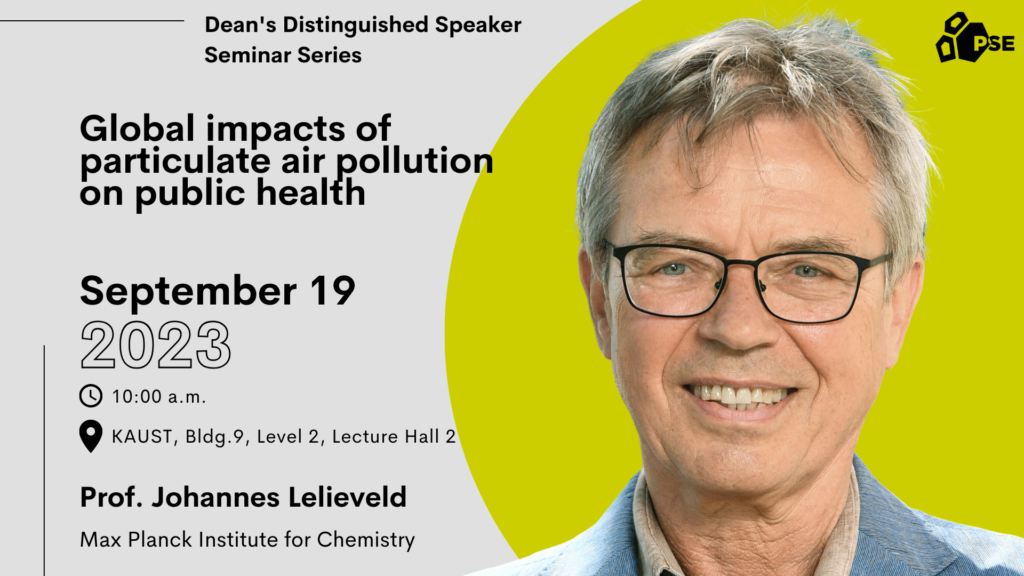
Global impacts of particulate air pollution on public health
Professor Johannes Lelieveld, Max Planck Institute for Chemistry, Mainz, Germany
Tuesday, September 19, 2023
10:00 a.m. – 11.30 a.m.
Building 9, Level 2, Lecture Hall 2
Zoom link
Abstract
Long-term exposure to fine particulate matter (PM2.5) poses a leading public health risk. Our group has developed a data-informed global atmospheric model to compute the exposure to particle concentrations attributed to different source categories. We apply exposure-response functions to assess the health burden, including excess mortality. It appears that black carbon and anthropogenic organic aerosols are more harmful than other PM2.5 constituents, related to their high oxidative potential upon inhalation. Considering that these species may be about twice as hazardous as other PM2.5 compounds, domestic energy use emerges as a leading cause of mortality attributable to PM2.5, notably in Asia and Africa, while in Europe, America and the Middle East, the use of fossil fuels predominates.
Recently, we computed the global concentrations of ultrafine particles (UFP, <0.1 µm) at high spatial resolution (10km). UFP are of special interest, as they can translocate into the bloodstream and trigger systemic inflammatory responses, important for cardiovascular disease. From the global exposure to UFP we estimated the cardiovascular disease incidence. Preliminary results indicate that a large fraction of cardiovascular disease, previously attributed to PM2.5, may actually result from UFP. Globally, the mean loss of life expectancy from air pollution surpasses that of many known health risk factors, such as infectious diseases and is comparable to that of tobacco smoking.
Learn more at PSE Events.

